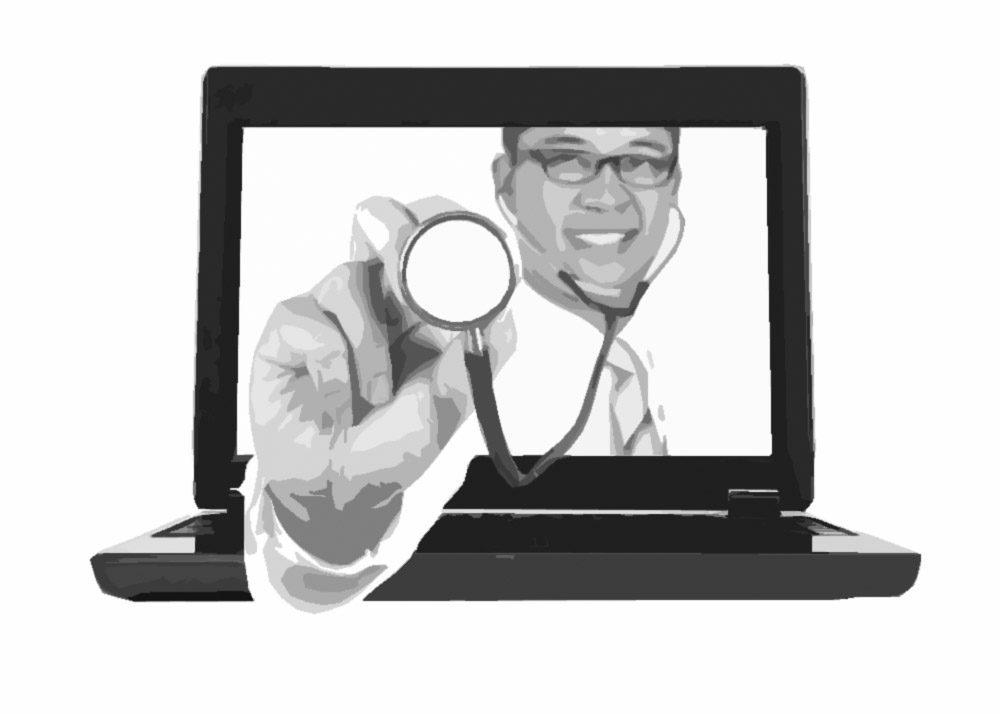
by medicaltechont | Mar 15, 2014 | eHealth, EHR, Software
A Fredericton doctor says the province’s new electronic medical records system has created an uneven playing field.
Dr. Doug Varty was one of about 60 doctors who adopted electronic records before the new system was introduced.
He says he is out tens of thousands of dollars and hundreds of hours of work because the Department of Health and the New Brunswick Medical Society went with a program that no one was using.
In addition, Varty won’t be able to link to the provincial system, he said.
“That’s a very important part of any EMR is being able to download your data — you know, your lab reports, your X-ray reports, consultant reports and all those sorts of things, automatically, and in a timely fashion. And we’re being denied that,” Varty said.
Read more

by medicaltechont | Jan 2, 2014 | Cloud, e-Health, eHealth, Ontario, Privacy, Technology
We are using the cloud more and more. As Internet connections get faster and more reliable, the convenience of having all our data available on all our devices becomes ever more attractive.
However, there are disadvantages to using cloud services, particularly the free of charge ones that still have to make a profit somehow. There are many valid, albeit scary, questions you’ll want to mull over before trusting a third party to keep your data safe and we’ve listed them below.
The answers, as you will discover, in this feature are generally not what you want to hear:
- Privacy – is your data stored or is it being mined for advertising and marketing purposes?
- Reliability – can you be certain that the service you’re using will always be available? What guarantees do you have regarding the safety of your data and is there anything you can do to improve this?
- Security – is your data encrypted? Who has access to the encryption keys? Could your data be hacked or stolen?
- Continuity – Can the cloud provider suspend or cancel your account, possibly even losing all your data, for any reason?
- Performance – Is your Internet connection fast enough to use the services you want without delays?
- Copyright – who owns the content you upload? Can your photos be sold or published without your consent?
Read more

by medicaltechont | Oct 8, 2013 | e-Health, eHealth
After more than a decade of hard work and collaboration, digital health is making treatment safer, more efficient, and, ultimately, better for Canadians.
Consider the following:
Use of electronic medical records (EMR) in community-based practices in Canada has yielded efficiency and patient care benefits valued at $1.3-billion since 2006.
Drug information systems reduce prescription errors and result in fewer adverse drug events with annual estimated benefits of $475-million.
Tele-health saved patients over 47 million kilometres in travel and $70-million in personal travel costs in 2010 alone.
Through investment with our jurisdictional partners, Canada Health Infoway has already established the foundational requirements for securely capturing, storing, sharing, accessing and managing health information. And while every province and territory is at a different stage of development, they are all working on these foundational elements according to their local priorities and needs.
Canadian consumers are comfortable with digital tools and are global leaders in the adoption and use of information technologies such as social media, online shopping and digital banking. Coupled with a growing desire to manage our wellness and to take on more active roles in the management of our chronic diseases, we find ourselves at a pivotal moment in our digital health journey.
Read more

by medicaltechont | Nov 12, 2012 | Canada, e-Health, eHealth, emr, Healthcare, Ontario, Ontario MD
After Helmut Braun’s wife died, he turned to the Internet to find someone else to play cards with. Before long, like so many Canadian seniors these days, he’d become something of a keyboard wizard. But when Braun had a heart attack last November, the 85-year-old former barber figured he’d played his last online ace. As he lay in frightening pain in an ambulance, the last thing he could have guessed was that he would soon become a cyber-pioneer. But that’s what happened in the long-term palliative care ward at Baycrest Health Sciences Centre in north Toronto.
Read more

by medicaltechont | Oct 10, 2012 | e-Health, eHealth, Healthcare, Hospitals, Ontario, Technology
The case for electronic medical records is compelling: They can make health care more efficient and less expensive, and improve the quality of care by making patients’ medical history easily accessible to all who treat them.
Small wonder that the idea has been promoted by the Obama administration, with strong bipartisan and industry support. The government has given $6.5 billion in incentives, and hospitals and doctors have spent billions more.
But as health care providers adopt electronic records, the challenges have proved daunting, with a potential for mix-ups and confusion that can be frustrating, costly and even dangerous.
Some doctors complain that the electronic systems are clunky and time-consuming, designed more for bureaucrats than physicians. Last month, for example, the public health system in Contra Costa County in California slowed to a crawl under a new information-technology system.
Read more
by medicaltechont | Apr 27, 2012 | eHealth, Ontario
A Toronto conference on health informatics hears experts tout the use of information technology to improve patient outcomes
Enterprises aren’t the only organizations that suffer from silos of data. So does the medical community, a Toronto health informatics conference has been told.
Dr. Bruce Friedman, professor emeritus of pathology at the University of Michigan medical school, said that for too long pathologists– who look at patient tissues through microscopes, and radiologists – who look at x-rays – have operated as separate, sometimes undigitized disciplines.
Their reports go separately to clinicians, who have to make a diagnosis.
But, Friedman said, it’s time, to bring the disciplines together through information technology to create a single “super diagnosis” to make it easier for doctors.
His speech on Thursday at the opening of the two-day Advances in Health Informatics Conference was one of a number of presentations by doctors and researchers on how IT can improve patient outcomes.
The conference led off with former Canadian astronaut Dr. Dave Williams, now chief executive officer and assistant professor of surgery at Ontario’s Southlake Regional Health Centre, saying health informatics “is truly the disruptive, revolutionary change that will change the way we deliver health care.”
Read more






